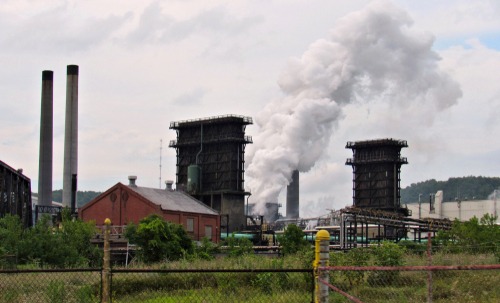
Following U.S. Steel’s April 30 announcement that it has halted a nearly $1.5 billion upgrade of its Mon Valley plant, state Senate Republicans and Pittsburgh business leaders criticized the “liberal energy agenda” of Gov. Tom Wolf and other elected officials.
“This announcement is yet another indictment of the Wolf Administration’s activist agenda on energy and permitting,” a group of Senate Republican leaders wrote on May 3. “The loss of this $1.5 billion project is a devastating blow to the economy of southwestern Pennsylvania and a slap in the face to the hardworking, blue-collar families who were counting on these jobs. It is a clear reminder that we need a commonsense, cooperative strategy on energy and the economy – not Governor Wolf’s go-it-alone approach.”
The Mon Valley upgrade investment was announced in May 2019, with plans to build a sustainable endless casting and rolling facility at its Edgar Thomson Plant in Braddock and a cogeneration facility at its Clairton Plant. In its April 30 statement, U.S. Steel said that instead of its $1.5 billion investment in upgrades, the company’s new plan will lead to the permanent closure of three batteries at the Clairton Coke Works facility by early 2023. The batteries account for 17 percent of the coke produced at the Mon Valley complex.
“The lack of support, and frankly open hostility from some elected officials means the loss of four-million construction man hours, approximately 1,000 full time union construction jobs and threatens in the longer term 3,000 steel workers,” said Tom Melcher, Business Manager for the Pittsburgh Regional Building Trades Council. “It’s absolutely unacceptable that any politician or business or community leader who claims to be supportive of union jobs and a strong middle class can allow this project to be lost.”
The Pittsburgh Regional Building Trades Council represents approximately 45,000 union tradespeople in southwestern Pennsylvania.
Pennsylvania Lieutenant Gov. John Fetterman also expressed his disappointment of U.S. Steel’s decision, noting that the benefits of the project upgrades would have been positively impactful for the region and for the state.
“This is absolutely devastating,” Fetterman wrote in an April 30 statement. “We had the opportunity to make some of the greenest steel in the world right here in Braddock and secure the future of thousands of good paying union jobs. But we lost that opportunity today.”
According to U.S. Steel President and CEO David Burritt, the decision to cancel Mon Valley’s major upgrade stemmed from delays in the planning and permitting process caused by the COVID-19 pandemic. In particular, he cited a delay in obtaining routine permits from the Allegheny County Health Department, which gave U.S. Steel additional time to evaluate the project and its impact on the company’s carbon neutrality efforts.
Senate President Pro Tempore Jake Corman R-Bellefonte) and Senate Majority Leader Kim Ward (R-Westmoreland) as well as Sens. Elder Vogel (R-Beaver), Camera Bartolotta (R-Washington), Pat Stefano (R-Fayette), Wayne Langerholc, Jr. (R-Cambria), Joe Pittman (R-Indiana), and Devlin Robinson (R-Allegheny) also noted that Senate Republicans have long been concerned about the “broken permitting process” within state agencies.
“In this case, final permits were never issued by the Department of Environmental Protection or the Allegheny County Health Department despite both entities having nearly two years to review the applications,” the senators wrote. “This inaction has cost southwestern Pennsylvanians up to 1,000 immediate construction jobs and diverted billions in direct and indirect economic impacts out of Pennsylvania’s economy.”
The senators continued, stating that the actions of Wolf and other Pennsylvania Democrats have already decimated the natural gas industry in the state, which has caused an erosion of Pennsylvania manufacturing.
“No group has felt the whiplash and uncertainty of these poor public policy decisions more than our middle-class working families,” the senators wrote.
Jeff Nobers, executive director of Pittsburgh Works Together, a union-business alliance that advocates for a mix of traditional and new economy industries, noted that while U.S. Steel’s new plan calls for the closure of the three Clairton coke batteries, the company nor government leaders have offered a solution for the jobs that will be lost through natural attrition.
“At a time when our unemployment rate stands at 7.5 percent, every job is of immense value,” Nobers wrote. “As we recover from the pandemic, we should be working together to grow the region into the diverse economic engine it could be but instead we see an elitist ideological philosophy held by a well-funded few lead the misdirection of our region and further underscore the well held belief that our region and state are hostile to the manufacturing, energy, and utility industries, among others.”
Nobers added that the environmental activists, regulators and politicians who demand clean air are the ones who have now derailed a project that would have provided emission reductions of up to 60 percent as well as many other performance improvements.